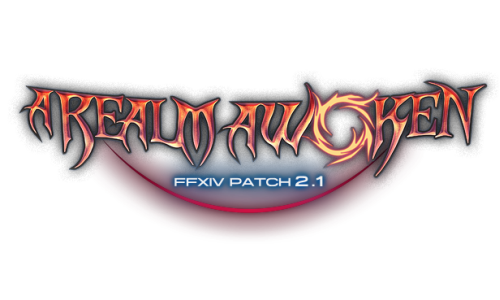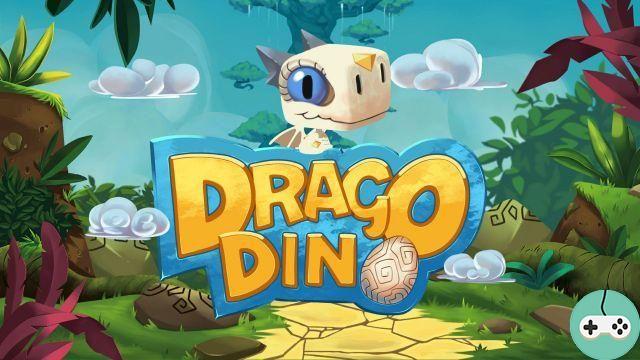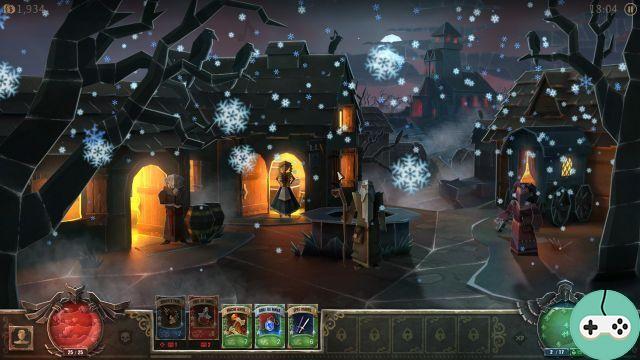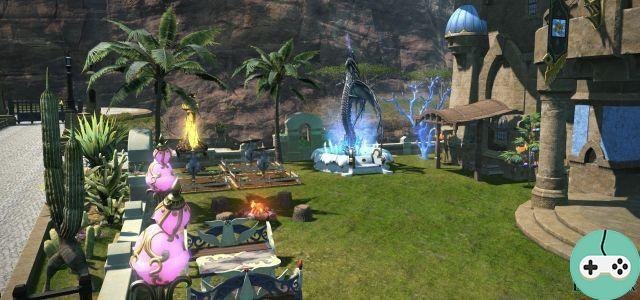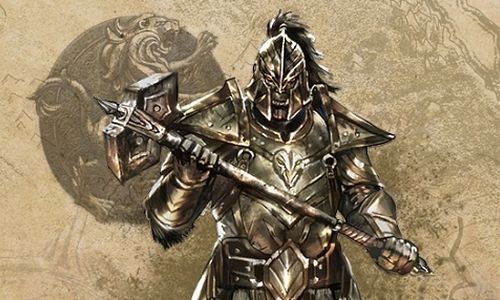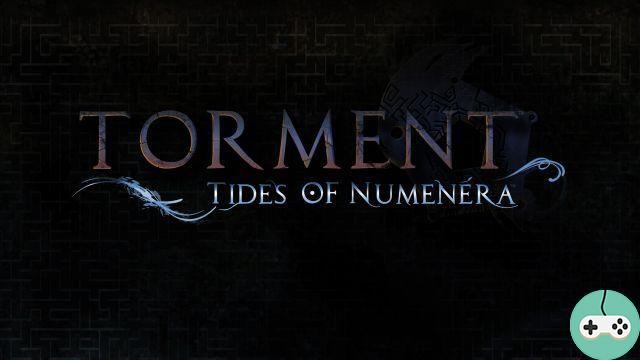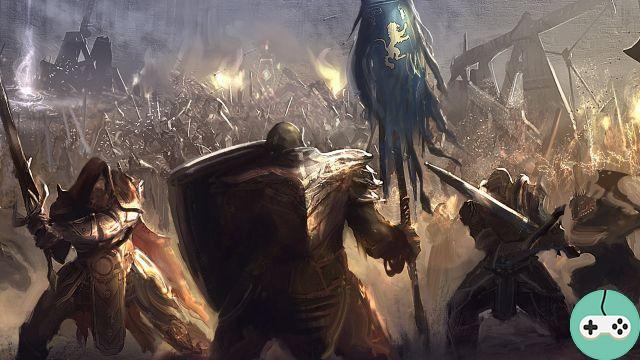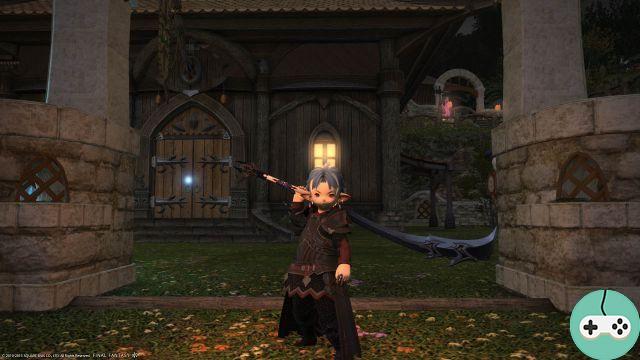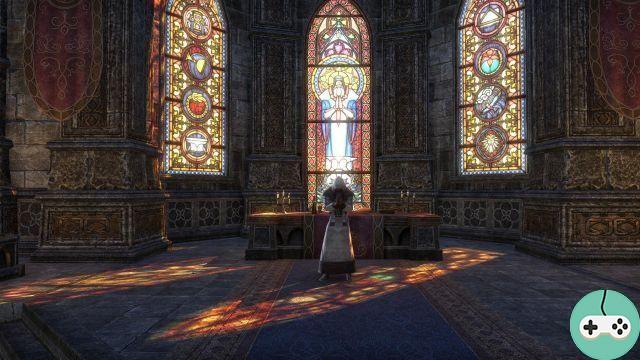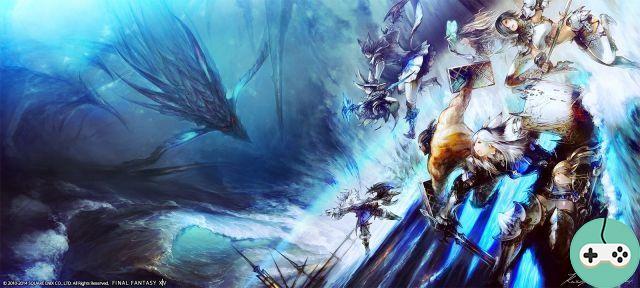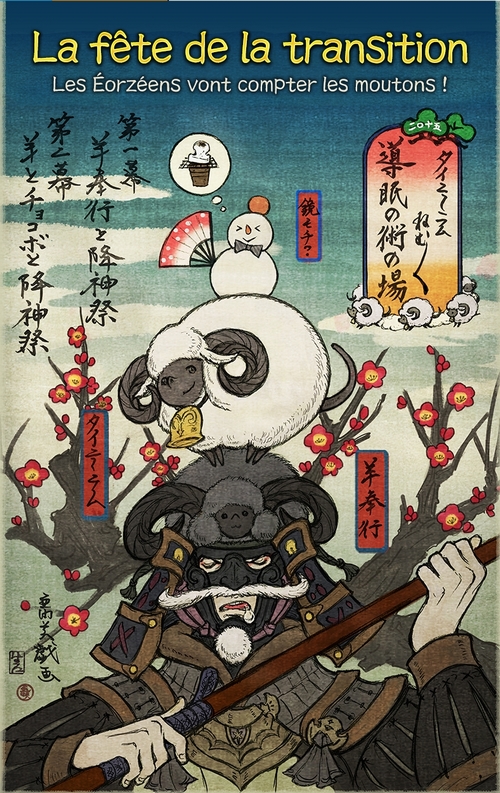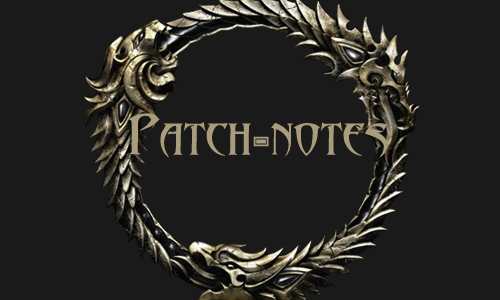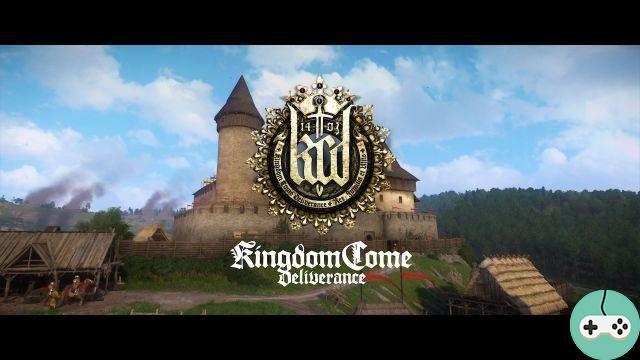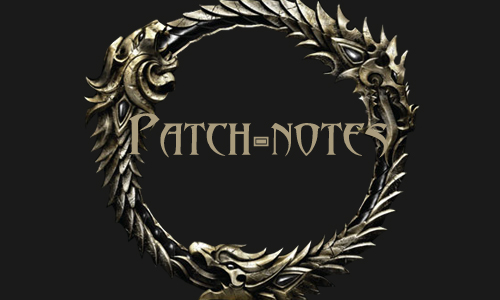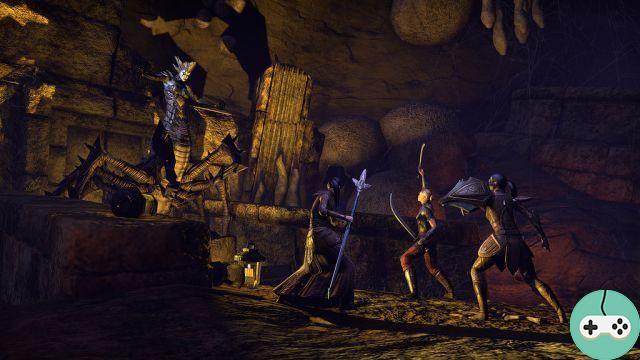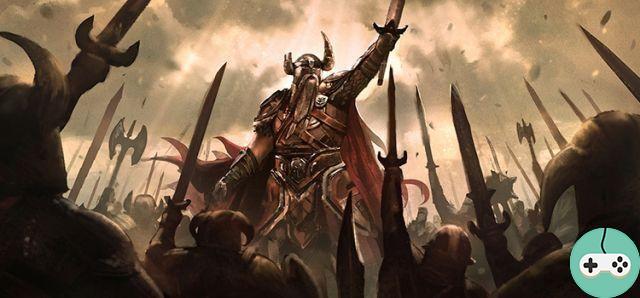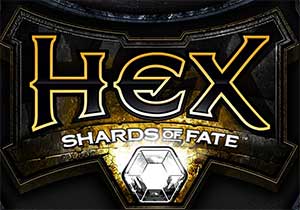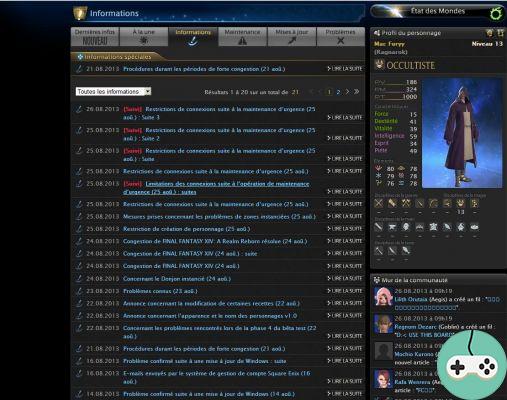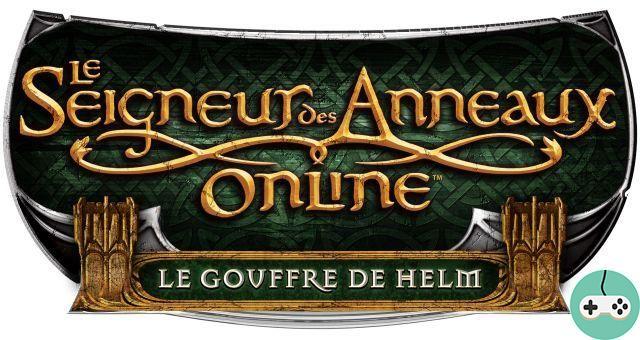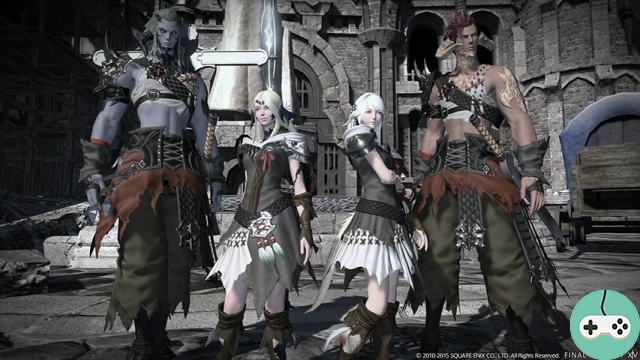
Have you ever wondered if there is a rule governing the names of all the characters you meet during your adventure in Final Fantasy? I suggest you detail in a series of articles each of the races and tribes as well as the method used to determine their name. Maybe this will inspire you for your character!
Today I will introduce you to the Ao Ra.

Description
The Ao Ra are originally a people from the eastern continent Othard. Many rumors say they are descendants of dragons, not least because they have horns and scales on their bodies. Two tribes make up the Ao Ra people, one sedentary and the other nomadic.
Many scholars have looked into the matter, with a tendency to dismiss rumors that dragons do not show differences in horn size between males and females like the Ao Ra. The Ao Ra's cranial growths allow them to have better hearing and spatial recognition, which dragons do not have.
The Raens

If you want to distinguish the Raen from the Xaela (the other tribe), you have to look at their scales. The Raens have very clear white scales, inherited from an ancestor commonly known as "Father of Dawn". Although calm and collected, many of them crossed the seas to reach Eorzea in search of adventure.
Raen names are based on the Japanese language, but to stay within Raen naming conventions, be aware that manga character names are too recent to match. We must then turn to Japanese names from the XNUMXth to the XNUMXth century.
Wanting to name a Raen therefore requires knowing the Japanese language well so as not to make mistakes!
Men's first names
They are drawn mostly from the natural elements, synonymous with power and agility and sometimes even being uncontrollable. It is also not uncommon to see farmers or fishermen having first names recalling their trades.
- Unzan (literally "cloudy mountain")
- Kaien (literally "sea swallow" or even "petrel-storm")
- Isse (literally an old bar of about 30 paces)
- Gyosei (literally "the dawn star")
- Fugetsu (literally "moon and wind" -> a pleasant landscape)
- Kokai (literally "raging sea") - for fishermen for example
First names of women
Like men, Raen women often wear first names in relation to nature, plants and seasons: everything that represents beauty and benevolence in Doma society.
- Ajisai (literally "hydrangea")
- Izayoi (literally the 16th night, between the 16th and 17th night of the 8th moon)
- Kumokiri (literally "cloud cutters", a variety of orchids)
- Koharu (literally "little spring", Indian summer)

But be careful, it is not impossible to cross a Raen with a first name representing power and conversely, to cross a male Raen called "Sweet Autumn".
Raen Names
Aoran ancestors previously used their clan name for the surname. But by becoming sedentary, the Raens have segmented society and only families in power have a legitimate right to bear a name. Their names are often based on combat prowess or their position in the military.
- Buhen (literally "bravery in battle")
- Yuzuka (literally "handle of the bow")
- Gunji (literally "army samurai" or "warrior", "soldier")
- Yatsurugi (literally "eight blades")
- Obinata (literally "blades carried at the waist", the fact of carrying two weapons indicated that one was a warrior)
This does not prevent families from the "lower classes" of society, such as merchants or farmers, from using a name related to their profession to facilitate daily life.
- Motokawa (literally "original skin). Used by hunters and tanners.
- Nushiya (literally "lacquer specialist shop"). Used by painters or lacquerware dealers.
- Naeuri (literally "seedling seller"). Used by farmers and sellers of seedlings.
- Kasanui (literally "umbrella weaver"). Used by umbrella manufacturers.
- Torioi (literally “bird stalker”). Used by farmers and hunters.
The order of the first and last name
Since the first and last names of Raens are inspired by Japanese culture, it seems logical that they are spelled in the same order. But for the people of Eorzea, they will write the name of the Raen in the western style.
- On Othard, we use name + "no" + first name ce qui donne par exemple: Yatsurugi no Yuki
- On Eorzea, we put in the order we know first name + last name, ce qui donne: Yuki Yatsurugi
The Xaela

You can recognize the Xaela by their dark scales. Bearing the legacy of the "Mother of Twilight", they are apt to fight and seek warlike contact.
As the Xaela are the nomads of the race, they bothered less and remained in conventions relating to the tribes. To mark this nomadic side, the names of the Xaela are based on Mongolian names used around the XNUMXth century. By searching on the internet, we can find a number of them including:
- Male names
- Ambagai
- Chiledu
- Tagadhur
- Khudus
- Ozbeg
- Female names
- Khojin
- Measure
- Alun
- Dagasi
- Son
As the Xaela tend to live in clans, and until now they didn't have to write much, there are several possible spellings for a given name. It is therefore not surprising to see variations since it is the pronunciation that counts in the end.
The names of the Xaela
They are quite simply from one of the 51 tribes of the Xaela (themselves of Mongolian origin, from the XNUMXth to the XNUMXth century).
Names of the 51 tribes
- Adarkim, the largest tribe
- Angura, dark-skinned mountaineers
- Arulaq, an isolated tribe believed to be lost
- Avagnar, a secret name that equates to death if discovered
- Bairon, masters of survival
- Bayaqud, where women have several husbands
- Bolir, which turns animal defections into charcoal
- Borlaaq, a tribe made up of women only
- Buduga, a tribe made up of men only
- Dalamiq, one of the only sedentary Xaela tribes
- Iriq, a tribe that follows the Borlaaq and raising their abandoned babies
- Jhungid, the second largest tribe and enemy of Kharlu
- Kharlu, the third largest tribe and enemy of Iriq
- Khatayin, masters of goat hunting in the mountains
- Malqir, who designates his leader after a game close to chess
- Mankhad, who fights with poison darts
- Mierqid, a tribe with an impressive number of secret deposits
- Noykin, master of horse taming
- Olkund, whose men are very tall
- Dazkar, a tribe where men stay at home and women hunt with bows
- Oronir, who worships Azim, the sun goddess
- Oroq, which uses sledges to transport goods and children
- Qerel, whose limbs wear armor made from the bones of tigers slain with their bare hands
- Torgud, whose limbs move without clothing but covered with a protective paint from the sun
- Tumet, who ties children to trees. If a child manages to break away, he is worthy to join the tribe.
- Ugund, which has a rather special burial rite
- Uyagir, one of the few sedentary Xaela tribes
- Dhoro, a tribe quite isolated from the rest of the other tribes and which flees from foreigners
- Orben, a tribe that constantly navigates the great inner river
- Ejinn, who gets around by swimming rather than on foot or by boat
- Dotharl, whose members display extreme violence
- Hotgo, an ancient tribe slaughtered by the Dotharls
- Sagahl, who considers animals like men, therefore vegan
- Kahkol, made up of orphans and refugees from vanquished or wiped out tribes
- Kha, who seeks to meet other races
- Mol, a believing tribe ruled by the visions of the shaman of the tribe
- Gesi, masters of the javelin
- Kagon, nocturnal tribe
- Goro, whose members are married to a horse of the opposite sex
- Gharl, simple tribe with a ritual linked to the earth
- Dataq, whose limbs sleep in the saddle and only rarely stop
- Haragin, a tribe with incredible marine legends
- Ura, tribe that collects minerals
- Moks, whose members are infiltrated into other tribes
- Geneq, whose members use whistles and clicks to speak
- Horo, who considers being overweight a sign of authority
- Himaa, two-thirds of whose pregnancies give birth to twins
- Malaguld, one of the few tribes that accept the Raen among them
- Urumet, whose members travel carrying their elders
- Qalli, whose members communicate with songs
- Qestir, who does not speak, considering words as lies
And you, do you feel more like a Raen or a Xaela? Give us your names!
Sources
Final Fantasy XIV Official Website: Heavensward
Forums The Lodestone V1




